Bolling has announced that it is abandoning its personal battery-electric pickup truck plans. The company has posted an announcement on its website that reads as follows:
"We started in 2015 with a dream to make the best trucks on the planet. The off-road capable, all-wheel-drive B1 and B2 are powerful, innovative, and distinct. We've put countless hours of hard work and passion into making something we are all very proud of. However, today we're postponing their development and shifting our focus to commercial trucks and fleets. This is a vitally important move for us, 'cause it enables us to continue our development of our technology, and make a real impact in the green future of automotive."
Related Story: Trouble Brews At EV Truck Maker Lordstown Motors
Bollinger Quits Person Truck Development
In other words, Bollinger is quitting on the personal battery-electric truck market just as the major automakers are about to release their own versions for delivery after what seems like eons of delays and promises.
Related Story: 26 Months After 2019 Unveiling of the Tesla Cybertruck It Is "Indefinitely Delayed"
Why Commercial EVs, Not Personal, Make the Most Sense
However, if you are like me and you despise the noise and air pollution from local delivery and commercial vehicles, this move is good news. It means that if Bollinger succeeds, and we have no reason to think the company will, they will someday be providing commercial trucks that won't jake-brake down the hill near your home, or fill your air with diesel particulate and polluting chemicals.
With tight global EV battery capacity being the primary limit today on how many can be produced, sold, and delivered, this is a shift we hope that all EV producers will make. Nifty six-figure off-road EV trucks will run a few hours per day or maybe even per week. By contrast, commercial vehicles can operate all day almost every day. The emissions saved are huge by comparison to the green-badged toys for the wealthy almost all of the EV pickups being imagined today are.
How do you feel about Bollinger's pivot to commercial? Tell us in the comments below.
Image courtesy of Bollinger.
John Goreham is a long-time New England Motor Press Association member and recovering engineer. John's interest in EVs goes back to 1990 when he designed the thermal control system for an EV battery as part of an academic team. After earning his mechanical engineering degree, John completed a marketing program at Northeastern University and worked with automotive component manufacturers, in the semiconductor industry, and in biotech. In addition to Torque News, John's work has appeared in print in dozens of American news outlets and he provides reviews to many vehicle shopping sites. You can follow John on TikTok @ToknCars, on Twitter, and view his credentials at Linkedin
Re-Publication. If you wish to re-use this content, please contact Torque News for terms and conditions.
Set as google preferred source


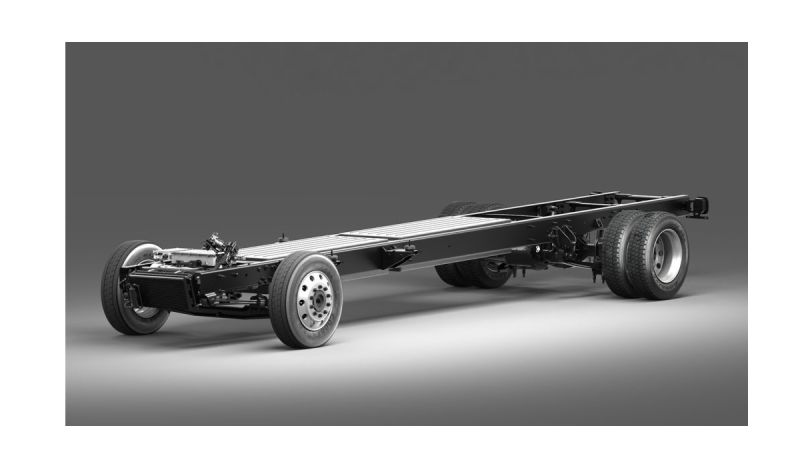




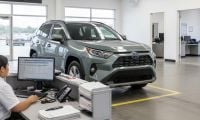
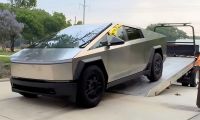
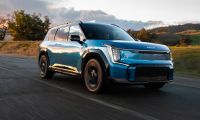
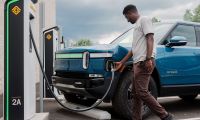

Comments
I am not surprised by this
Permalink
I am not surprised by this announcement. The Bollinger truck looked like a fine effort, but ultimately it cost too much. The design always reminded me of a Lego Jeep, but with a price of $125K and up, It just seemed like a hard sell to me. The big selling points of EVs are low cost of operation, smooth, quiet, clean, high performance, and low maintenance. But how much does someone who wants to buy a Jeep, RAM truck, or Land Rover, really care about those attributes? Maybe if they were able to actually build them before Rivian or Ford came out with their EV trucks (at half the price) But Covid threw a monkey wrench into all automotive businesses from 2020-now. I figure that the modular design of the Bollinger EV truck lends itself to customization for commercial needs easily. And businesses can justify paying a little more for a bespoke work truck that is an ideal match for the job. The larger truck market is easily big enough to support low volume specialty trucks. I wish Bollinger the best of luck with their commercial EV product shift.
Me too. I hope they succeed
Permalink
In reply to I am not surprised by this by DeanMcManis (not verified)
Me too. I hope they succeed wildly. Noting would make me happier than for the commercial trucks operating in my neighborhood to switch to electric operation. Starting with the loud, smelly US Post Office exhaust-spewing abomination that farts its way up and down my street. I'm not kidding.